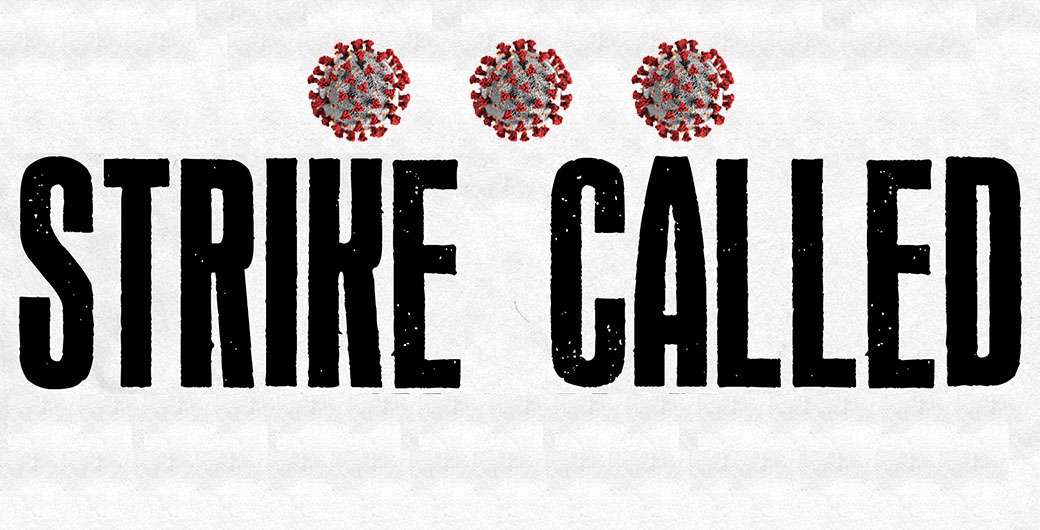Paul Feather calls us to reframe this time of crisis: “Shall we permit the storytellers to name what it is that we do? They would call this a lockdown, but we are going through the motions of a general strike. Our foe is down. Are there no holds barred? Strike now! Strike down their stories. Break their magic wand.”
I have been told that this is war.
That this virus makes frontlines of our hospitals and calls for measures untold of before.
That there will be victory gardens again.
Ford will make ventilators for the fight, and United We Stand.
Are there no holds barred then? Where is the enemy that we may strike? But wait! Is there time for a treaty?
Perhaps we may yet consolidate our allies—these gathering armies that bristle at each other may yet coalesce against a greater foe. This has happened before, has it not?
Lift your gaze.
When Pizarro landed in Peru, he met an empire quite as plagued by infighting and partisanship as our own. We should be wary of reducing the outcome of complex encounters to absurd things like causes, but the Incas were quite confident in the integrity of their empire. They were unconcerned about conquest by a few hundred smelly white men, and opposed factions within the Inca’s domain sought to wield these invaders against other factions. For this lack of unity, at least in part, they were killed. Por viruela. By a virus.
We will do this also. We will not unite in what they tell me is this war against the virus.
Our so-called leaders, the media, and other influencers also seek to wield this new invader as a weapon of their own. This is a form of domestication, for we cannot tolerate a wild thing. Eventually they will tame this virus with vaccines, but in the meantime those who would wield the power of this wild beast will keep it on a leash made of story. They will weave together narratives for their already docile people—for they are the storytellers, and we the captive audience. But, they will offer us a choice. Some semblance of freedom. We may choose which side we’re on.
Here is the choice we are given; the story we are told; the dichotomy we must never question. Shall we ask for protection from our government?—lockdown measures to protect the fragile among us—or do we argue for loosened restrictions (even if this means more deaths) to protect the economic system? This is your choice. It’s the Heartless and Practical Capitalists against the Naive and Compassionate Socialists—which side will you choose? In this war against the virus, sacrifices must be made. What will it be—protection or profit?
Lift. Your. Gaze.
I question this declaration of war. I will not fight a fight against so new an enemy when I have old enemies enough. Nor will I submit that my stories be told in the dichotomies of power and politics. I am at odds with this economy already, it’s true—I would love nothing more than to shut it down—but I am wary of these strenuous protections. These lockdown measures respond to the death of privileged people and nothing else. Where is the National Guard when indigenous lands are stolen? When is the global economy shut down to save those who die mining conflict minerals in the Congo? Where is the infrastructure mobilization that stops the deaths of malnourished children?
There is a war we are already fighting, and it is the same war that the Incans lost five hundred years ago. Where are our allies in this war? The virus has struck. The economy reels and casts about for weapons against this new foe. It reaches for that magic wand that tells the stories, and in so doing it regains initiative and footing. Shall we permit the storytellers to name what it is that we do? They would call this a lockdown, but we are going through the motions of a general strike. Our foe is down. Are there no holds barred? Strike now! Strike down their stories. Break their magic wand.
Do not let them name what we do.
Do not let them tell us that they lock us down for our own protection—that we cower before this virus to protect the fragile among us. We will say what we are doing, and it is a strike. We will protect the aged and infirm, yes. But when they call us out again, we will not come. Or we will come with our demands. And if we are frustrated at so many who do not isolate themselves and so accelerate the spreading virus, let us draw them into solidarity with our effort by offering something to gain. Call it a strike. Offer the carrot and not the stick. Listen to their demands.
This is all a bit naïve of course. There are big wheels turning that do not stop so quickly. I know this, for I have pushed against them all my life. I do not believe the workforce will suddenly coalesce behind a story that the storytellers have not written for us, but I do believe we might leave behind a word. A piece of punctuation. A blot of ink upon the story which cannot be wiped out.
And also there is this: There are bigger wheels than those that turn in this machine, and lest we also succumb to our temptation to wield the wildness of the virus for our own ends—however noble they appear—let us remember that it is the virus who wields us. Let us not domesticate or leash this power. Let us seek to be the point of the sword and not the hand that holds it.
But let us strike.
Paul Feather is an animist farmer and writer living in Georgia, USA. He is the co-author of three books, and some of his work has been published in Dark Mountain. His writing may be found at www.paulandterra.com.
